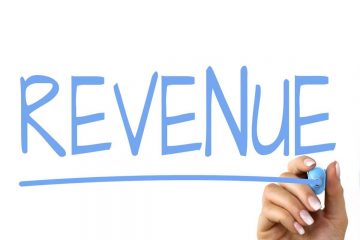According to the recent global studies:
- More than 80% of hotel bookings start with a search on a search engine.
- More than 90% of travellers click at least once on one of the search results which is listed on the first page
- Although depending on the geographical location, more than 65% of hotel revenue is from the direct bookings channel, that is based on SEO in Europe.
These results prove that what is now a common concurrence within the global tourism market: that the online image of a hotel is its primary selling tool. Considering this, SEO seems the core selling strategy.
SEO in a Nutshell
Optimization of Websites for Search Engines is often abbreviated as SEO. The term SEO essentially refers to the set of processes to optimize and improve the web site to rank in higher positions on the search results. In short, SEO is everything we do onsite and offsite, with the aim of displaying our web site as high as possible on the search results rankings. The ultimate goal of SEO is to increase the number of visitors to a website by organic results. This is done by the effort to make the website high ranking in search engines.
What Should be Done for an Effective Hotel SEO
Strategic Keywords
Proper selection of keywords is the first step of effective optimization. A correct SEO strategy should target and track the right keywords. We should avoid generalizations and choose the keywords which defines what the hotel really is about. For example for a hotel in Ibiza, “hotels in Ibiza” or “holiday in Ibiza” are not the keywords which are to differentiate your hotel for a higher rank. They are extremely generalized. Instead of them, “spa hotel in Ibiza”, “Ibiza family hotel”, “beachfront hotel in Ibiza” are more distinctive for search engines.
Distribution of Keywords
After choosing the strategic keywords, we have to distribute them in a user-friendly way across our web site. The strongest search engine, Google, does not evaluate a website as a whole. Instead, it evaluates each page of a web site and lists these pages accordingly on the search results. If a website visitor enters a web page and understands that the content is not what they expect it to be, they will exit almost immediately and then enter one of the other search engine results. Search engines “capture” user behaviours and when they detect such reactions. They register them as negative. If we then add the fact that “users’ signals” are at the top of the SEO factor correlation list. Therefore we should select keywords carefully and place them on the related pages properly.
Optimization of Technical Parts
Good optimization in technical parts of the web site is another key step which affects directly search results. Good optimization in the technical part of a website has to include the following;
- The correct meta tags, which are title tags, meta descriptions and etc.
- Creating links to all pages of the web site to ensure that a visitor can reach all pages of the website.
- Fast loading of pages, since nobody prefers to wait to display a web page.
- Clear website structure and website.
- The absence of many and heavy graphics which affects the performance of a website and user experience negatively.
Special attention should be given to the title tag and meta description of web sites because these are the “tools” that will convince the user that they will find what they are looking for on our website, and thus visit them. In addition, to be displayed in the higher positions of search engine results, it is equally important to persuade the user to visit that website. These metadata, like title tags, meta description, meta tags give the opportunity to achieve this.
Integration of Websites
Websites should be fully integrated and have thorough online profiling. Google provides the required tools like Google My Bussines to provide the correct and specific data like business contact information for a website. By this information, any search with our hotel name, our hotel’s contact details appears on the entire tab (the box that appears on the right side of the screen) with all the necessary business information and photos. Respectively, we should consider to include the hotels’ business information and search engine related data in local or international business directories too (such as the Yahoo directory).
Link Building
Links building is another step which directly affects the results of search engines. This is more difficult than the previously explained steps since this optimization also depends on the third-party resources. This optimization requires to find links from these sources that lead to our site. These sources may be electronic forms of the digital versions of many classic media channels, travel blogs and/or review sites. Links building requires a lot of time, effort, patience, persistence, continuity and consistency, communication, contacts with media and bloggers abroad etc. Therefore, this process is usually assigned to specialized experienced digital marketing companies.


